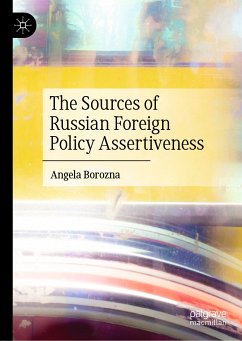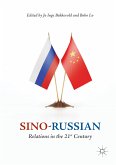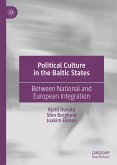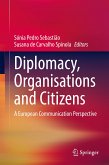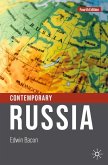'Borozna's book skilfully applies the concept of strategic culture which is normally investigated in Western contexts to the case of Russia. It provides an innovative and insightful way of understanding the sources and pathways of the gradual development of Russian assertiveness in the world order following the end of the Cold War. In a very accessible style, among many things, the book presents a wealth of empirical observations into the complexity that underpins Russia's foreign policy.'
-Cristian Nitoiu, Lecturer in Diplomacy and International Governance, Loughborough University London, UK
This book explores the sources of Russia's foreign policy conduct since the end of the Cold War. It is aimed at those interested in Russian foreign policy, international security, and diplomacy.
The book embraces an eclectic approach by applying insights from several strands of IR theory, exploring both international and domestic sources. The author argues that Russian foreign policy is influenced by the country's strategic culture, which exhibits some persistent elements inherited from Russia's imperial past and from Soviet times. The challenges to Russia's security interests from Western policies led to an increase in Russian foreign policy assertiveness. As a result, Russia is becoming more committed to Eurasian integration and nurturing relations with China. This book further argues that Russia's relations with the post-Soviet states have been and will remain a priority of its foreign relations and, therefore, Russia is likely to continue challenging any Western interference in these states. The author maintains that geoeconomics and the protection of overseas economic interests are becoming more prominent in Russia's foreign policy calculus. The role of domestic factors in the country's foreign policy, such as authoritarianism, regime vulnerability, and the role of political factions, is also examined.
Angela Borozna holds a Ph.D. in political science from the Graduate Center, City University of New York, USA, and a Master's degree in finance from the George Washington University, USA. She previously worked for several finance companies in London, New York, and San Francisco.
Dieser Download kann aus rechtlichen Gründen nur mit Rechnungsadresse in A, B, BG, CY, CZ, D, DK, EW, E, FIN, F, GR, HR, H, IRL, I, LT, L, LR, M, NL, PL, P, R, S, SLO, SK ausgeliefert werden.

